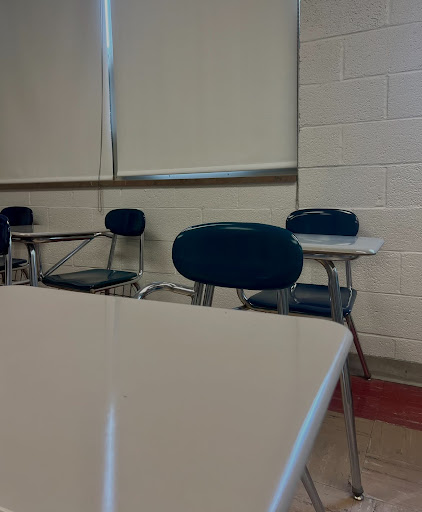
Older generations called it playing hooky, we call it skipping, in reality, it is called truancy. Truancy is defined by the dictionary as “the act of staying away from school without permission.”
In 2023, an estimated 27% of students in Ohio were chronically absent. At SHS, Attendance Liason Susan Weiss sees a similar figure.
“At this point in the school year, we have about 200 students who are considered truant,” Weiss said. “[Truancy] is the highest it has ever been.”
To be truant, according to Ohio House Bill 410, a student must have missed 65 hours or 10 school days, and these absences must be unexcused. Once a student is over 65 hours, they need a legitimate excuse to miss school.
Weiss has seen this rise firsthand.
“Some of it may have stemmed from COVID, but I think it could also be parents not pushing their kids to attend school,” Weiss said.
Every morning Weiss receives calls from parents excusing students from school.
“I’ve gotten not feeling well, doctors appointments, and sometimes mental health and some excuses that are just TMI,” Weiss said.
From August to June, Monday through Friday from 7:50 a.m. to 2:55 p.m. kids are in school learning. Depending on the student, there are also clubs, sports and jobs. After operating on this schedule for so long, many students are left feeling exhausted and burnt out.
The pandemic changed the way many students thought about school. According to the New York Times, with assignments being posted online, many students fail to see how important actually attending school is.
SHS Guidance Counselor Kathleen Kinney understands how easy it is for students to become quickly overwhelmed by having to make up work.
“If you do not have a student in front of you learning the material, it is so hard to get them caught up later,” Kinney said. “Think about when you miss a day of school, now you have to learn yesterday and today in at least five classes. Multiply that by a whole bunch of days, and it’s a snowball.”
English teacher, Jennifer Buemi, often struggles to get students caught up after they miss a lesson.
“Truancy has negatively affected my class and my students,” Buemi said “I am unable to teach the methods they need in order to fully understand the content. I can simply give them the basics.”
According to Buemi, after students return to school, they tend to feel lost when it comes to understanding lessons because they have missed so much.
Many students are also dealing with the effect that the pandemic had on their mental health.
“We had to increase counseling staff when we came back from the pandemic to handle the amount of social-emotional issues that we have had with kids,” Kinney said. “There’s been an uptick in truancy, and there seems to be a correlation between the two.”
According to the NEA, not only are students more anxious than ever, but many of them also have to deal with physical conditions that prevent them from going to school. Junior Brayden Daniel has missed 45 days of school, many of those absences due to a heart condition.
“I come to school a decent amount three or four times out of the week,” Daniel said. “I’m always at a deficit– I have to put in double the work a lot of the time. It’s not really my fault. I can’t control my condition.”
There is also a behavioral side to truancy. One way students are disciplined here at SHS is through out-of-school suspensions which cause more absences. Daniel has been suspended on multiple occasions and doesn’t think it helps students.
“I don’t really think suspending students is effective,” Daniel said. “I think there’s a lot of better ways to do it such as [in school suspension]. You’re here getting your work done, and you still have to show up. Out of school is just a vacation for most kids. It’s not like you’re going to go home and do your schoolwork.”
Often there are links between mental health and a student’s temperament.
“I don’t think you can tease the anxiety or depression apart from the behavioral issues,” Kinney said.
Research suggests that when a person is struggling with depression all their negative emotions become amplified, including anger.
Truancy is more than just missing school, it is a product of many different events coming together and affecting student’s attendance. Staff does their best to try and get students in school and emphasizes that whatever students may be going through, they do not have to go through it alone.
“I don’t judge students if they are late or tardy or unexcused because that’s separate from the person that they are, but I wish they were in school more,” Weiss said.







![The Solon Girls Golf Team played at the Tanglewood Club at the District Tournament. The course was quite difficult, said coach Damien Kopkas.
“[The course] got a little narrow in spots, certain holes were a little tighter and tree lined," Kopkas said. "There was a lot of elevation changes, so a lot of walking down hills and having to adjust, playing different shots, using different clubs based on whether it was an uphill or a downhill shot."
Image illustrated by Halina Vitkouskaya.](https://theSHSCourier.com/wp-content/uploads/2025/10/unnamed-2025-10-14T105212.017.jpg)




